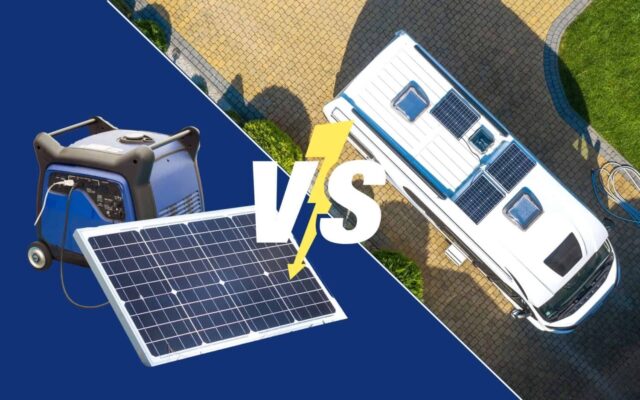
As our world continues shifting towards renewable energy sources, the debate between solar-powered and traditional generators is becoming increasingly prevalent. While traditional generators have been a reliable backup power source for years, a solar-powered generator offers an environmentally-friendly alternative that is becoming more accessible and affordable.
In this article, we will explore the advantages and disadvantages of solar-powered and traditional generators and help you determine which option may be better for your needs.
Traditional Generators
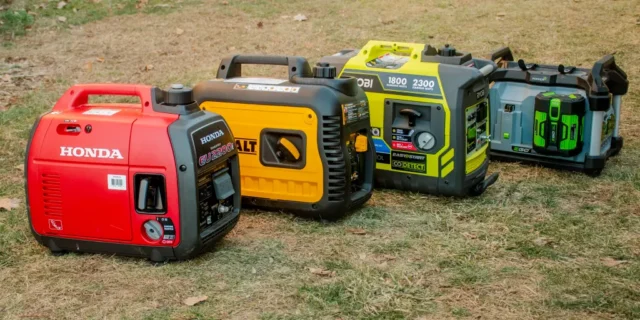
Traditional generators convert mechanical energy into electrical energy using an internal combustion engine. This engine burns fossil fuels such as gasoline, diesel, or propane to generate rotational motion, which an alternator converts into electrical energy. The electricity produced is then used to power appliances or devices. They typically have several main components, including the engine, alternator, fuel system, and electrical control panel.
Pros and Cons
Several advantages include reliability, durability, and high power output. These generators are reliable and can last for many years with proper maintenance. Traditional generators also can produce large amounts of electricity quickly, making them suitable for powering large appliances or tools. Additionally, fossil fuels such as gasoline or diesel are readily available at gas stations, making refilling the generator’s tank easy.
Despite their advantages, traditional generators have several disadvantages. One of the main drawbacks is the dependence on fossil fuels, which are non-renewable and contribute to environmental pollution. Traditional generators also tend to be noisy and emit fumes, making them unsuitable for indoor use or in areas with poor ventilation. Additionally, traditional generators require regular maintenance and can be expensive to repair if they break down.
Solar Powered Generators
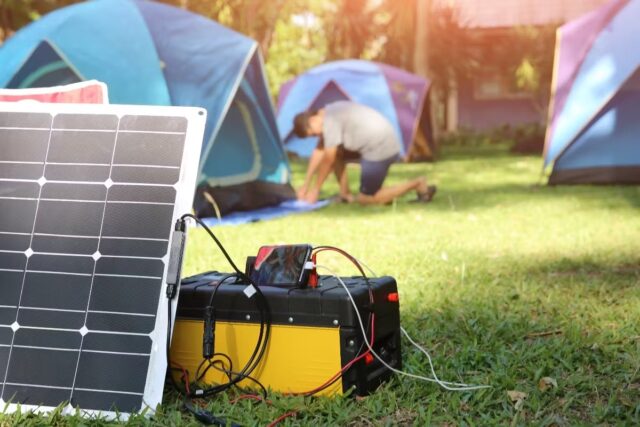
These devices harness the sun’s power and convert it into electrical energy. They typically consist of a battery pack, a solar panel, and an inverter. The solar panel absorbs energy from the sun and converts it into direct current electricity, which is then stored in the battery pack. The inverter then converts the DC electricity into alternating current electricity that can be used to power appliances or devices.
Pros and Cons
There are several advantages, including environmental sustainability, quiet operation, and low maintenance. These generators do not emit harmful pollutants and rely on a renewable energy source, making them environmentally friendly. They operate silently and do not require fuel, meaning they can be used indoors or in noise-sensitive areas. Also, they require minimal maintenance, making them a convenient and low-cost backup power source.
When it comes to the downsides, we have to mention the dependence on sunlight. These generators may not produce enough electricity during cloudy or rainy days, and their efficiency can be reduced by shading or debris on the solar panel. Moreover, solar-powered generators tend to be less powerful than traditional generators and may not be suitable for powering larger appliances or tools.
Another issue that we have to mention is related to unreliable manufacturers. Installing solar panels has become a trend in recent years, and many people are interested in this option because of its low impact on the environment and cost-efficiency in the long term.
However, it is not always guaranteed, especially if you don’t pay attention before buying panels. For example, getting a cheap model provided by an unknown manufacturer won’t lead to any benefits since it will have a low capacity and be unable to store a lot of energy.
Which Is More Cost-Effective?
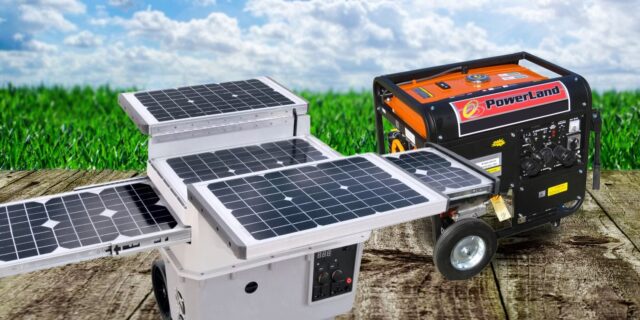
The cost-effectiveness depends on several factors, including the initial purchase price, fuel costs, and maintenance expenses. While traditional generators may have a lower initial purchase price, they require regular fuel and maintenance costs, which can add up over time.
Solar-powered generators, however, have higher upfront costs but do not require fuel or extensive maintenance. In the long run, solar-powered generators may be more cost-effective, especially if you live in an area with abundant sunlight and can take advantage of tax incentives or rebates for installing solar panels.
Which Generator Is Best for Your Needs?
When choosing the best generator for your needs, several factors should be considered, including your power requirements, budget, and environmental considerations. For example, a traditional generator may be more affordable if you need one for occasional use during power outages or camping trips. However, a solar-powered generator may be the better choice if you want a reliable and environmentally-friendly backup power source that requires minimal maintenance.
Impact on the Environment is the Key Feature
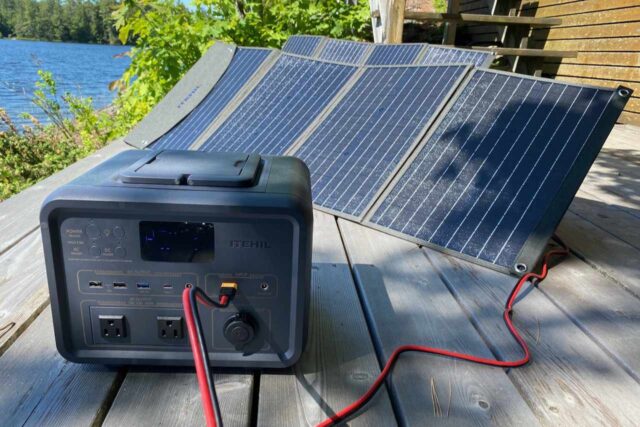
Regarding the environmental impact of power sources, it is clear that some options are more sustainable than others. In recent years, there has been growing concern about the negative impact of fossil fuels on the environment and climate.
Burning fossil fuels such as coal, oil, and gas releases carbon dioxide and other pollutants into the air, contributing to global warming and air pollution. As such, there has been a push towards more sustainable energy sources, such as solar power.
Solar power represents a renewable source that is getting the energy of the sun to produce electricity. Unlike fossil fuels, solar power emits no pollutants or greenhouse gases, making it a much cleaner and more sustainable energy option.
As the world becomes increasingly concerned about the impact of climate change, there has been a growing push towards renewable energy sources such as solar power. Solar power can help reduce greenhouse gas emissions, improve air quality, and promote a more sustainable future.
While there are still challenges to be overcome in terms of making solar power more affordable and accessible, it is clear that this energy source has the potential to be a major player in the transition to a cleaner, more sustainable energy future.
The Bottom Line
The choice between solar-powered and traditional generators will depend on your needs and priorities. A solar-powered generator may be the better choice if you are looking for a reliable backup power source that emits no pollutants and requires minimal maintenance. Therefore, it is a much better choice. However, a traditional generator may be more suitable if you need a generator for high-power output or extended use.









